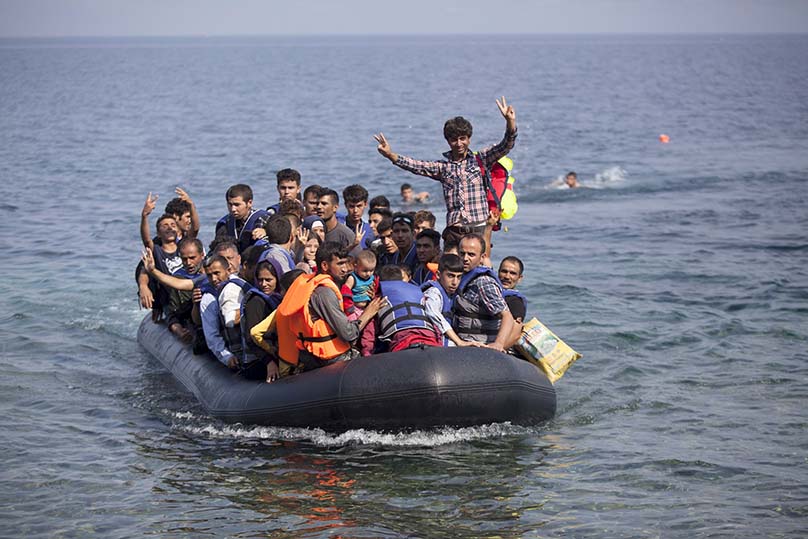I often check for news on my phone as I prepare dinner in the evening. Recently, after all the children had sat at the table, jumped up at hearing their Daddy come home, hugged and chattered to him, and sat back down again; after grace was said and water poured into cups, and the plates of food passed around, my 11-year-old suddenly asked: “Mum, why are you sad?”
How piercing that was! She’d seen right through me.
Before calling them together I’d seen one of those viral photos taken of Syrian migrants whose boats had capsized en route to Europe in recent weeks.
My daughter had noticed through the happy clatter and clamour of our little family meal time ritual something still frozen in my face or voice which betrayed the desperate chill of that image.

Something in me contracts a little in fear with each new shock that comes from around the globe – fresh acts of war and violence, the deluge of refugee families and resulting tragedies, revelations of the procurement for sale of foetal body parts after abortion, ongoing or growing persecution of Christians and other minorities, polarisation over the definition of marriage, broadening acceptance of a ‘hook-up’ culture among young people, the wobbling of our global economic system. I could go on.
As a parent, especially one given a little to anxiety as I am, the world can look pretty wild and frightening at times.
Then it can be tempting to tire of caring about the problems of people who seem distant or very different, to pay our routine donation to charity and channel all of my energy and focus on our immediate circle of family and friends. Compassion fatigue is a real thing.
Speaking recently to a congregation in Bolivia, Pope Francis spoke of this fear, and this closing of the heart, which he said was ultimately a closing of the heart to the poor.
“Frequently we tire of this journey. Frequently we lack the strength to keep hope alive. How often have we experienced situations which dull our memory, weaken our hope and make us lose our reason for rejoicing? And then a kind of sadness takes over. We think only of ourselves, we forget that we are a people which is loved, a chosen people. And the loss of that memory disorients us, it closes our heart to others, and especially to the poor.”
Pope Francis embodies Christian realism – highly sensitive to sin and suffering, he remains buoyant in his joy and hope.
Now he has directed the two Vatican parishes, St Peter’s Basilica and St Anne’s, to house at least one refugee family each, and asked every European parish, monastery, and shrine to do likewise. “Hope is combative,” he said.
The last three popes have repeatedly called us to be joyfully courageous, to be the saints of this new millennium.
They remind us that we are a loved people, a chosen people – chosen to be light for the world.
I ask myself: who are the poor I am forgetting when I want to curl up like a snail at the next touch of digitally-transmitted horror, which takes the edge off maternal warmth and replaces it with disengagement and burnout?
Of course, it’s my own husband and children first – they get impoverished of my joy in them and my undivided attention to which they have a legitimate claim.
And when I turn off my ‘compassion switch’ I also miss an opportunity to form the children after the hearts of Jesus and Mary – which were broken for the poor.
And so instead of pretending to Naomi that nothing was wrong, I told the truth – as much as I could around the younger children.
“Let’s pray for the refugees tonight at bedtime,” I suggested.
“Let’s pray for them right now,” said Hannah.
And so we did, for them and for us, that we might be able to continue helping them in our small practical ways. In prayer uniting ourselves, prayers with the prayees, all of us poor, but none poorer than Christ made himself for us.
